Turn any article into a podcast. Upgrade now to start listening.
Premium Members can share articles with friends & family to bypass the paywall.
The Dispatch is hitting the road—and you’re invited to join us for a live taping of our hit podcast, The Remnant with Jonah Goldberg.
In partnership with Truscott Rossman and presented by The Bahnsen Group, we’re heading to Grand Rapids, Michigan, for a live town hall event. Jonah will be joined by Dispatch national correspondent Kevin D. Williamson and former Rep. Peter Meijer for a lively discussion about the state of politics today, hosted by The Acton Institute.
The show starts at 7 p.m. ET on November 4, and is exclusively for Dispatch members—you can purchase a membership and ticket bundle here. After the show, join your fellow Dispatch members for a live comments section—spirited conversation over drinks and hors d'oeuvres.
Happy Thursday! Because our resident Cubs fan isn’t handling the morning edit today, we can safely report that Pope Leo XIV—a noted White Sox fan—took some enjoyment in responding to a “Go Cubs!” yell from the crowd this week: “Han perdido. They lost.” How did Executive Editor Declan Garvey respond when this was noted in Dispatch Slack channel Wednesday? “Martin Luther had some good points … ”
Quick Hits: Today’s Top Stories
- Hamas terrorists returned human remains of what it said were deceased Israeli hostages on Wednesday, and which the Israel Defense Forces have sent to Tel Aviv for identification. The terms of the ceasefire deal reached earlier this week stipulated that Hamas was to make a “maximum effort” to return the remains of all 28 deceased hostages, but Israel has only received the bodies of nine. The IDF identified one of the bodies returned on Wednesday as a deceased Palestinian, not a hostage. Hamas further stated on Wednesday that accessing any of the remaining bodies would “require significant efforts and specialized equipment,” but Axios reported later that day—citing an unnamed U.S. official and two Israeli officials—that Israel believes Hamas is capable of locating and returning more than a dozen more bodies, and will not advance to the ceasefire deal’s next stage until Hamas does so. While Israel threatened to permit only half the number of aid trucks to enter the Gaza Strip after receiving the two bodies on Wednesday, it allowed the vehicles to enter the area. Meanwhile, Hamas murdered and publicly executed several Palestinians on Wednesday in its crackdown on local militias opposing Hamas rule.
- President Donald Trump told reporters on Wednesday that he has ordered the CIA to take covert action in Venezuela against the regime of the country’s dictator, Nicolás Maduro. The president also said that U.S. air strikes in Venezuelan territory were under consideration. “We are certainly looking at land now, because we’ve got the sea very well under control,” he said. As the New York Times reported earlier in the day, citing unnamed U.S. officials, the operations are part of a broader plan to oust Maduro from power. Meanwhile, Venezuela’s government began celebrating Christmas earlier this month, following Maduro’s announcement in September that “Christmas starts in Venezuela on October 1st.”
- Defense Secretary Pete Hegseth warned in a North Atlantic Treaty Organization (NATO) meeting on Wednesday that the U.S. could soon ramp up pressure on Russia, stating the U.S. “will take steps necessary to impose costs on Russia for its continued aggression” if peace talks with Ukraine continue to stall. Following the meeting, NATO Secretary-General Mark Rutte said that more than half of the alliance’s members have agreed to help Ukraine purchase U.S. weapons, including “lethal and non-lethal aid,” and Trump is expected to discuss whether to supply Ukraine with Tomahawk missiles during Friday’s scheduled White House meeting with Ukrainian President Volodymyr Zelensky. International pressure continues to increase on Russia, with the U.K. announcing on Wednesday that it will place new sanctions against two major Russian oil companies, and Trump saying that Indian Prime Minister Narendra Modi “assured me today that [India] will not be buying oil from Russia.” Overnight Thursday, Russia launched a massive drone and missile attack on Ukrainian energy and civilian infrastructure, which Zelensky stated used more than 300 drones and 37 missiles.
- A federal district judge issued a ruling on Wednesday temporarily blocking the Trump administration from using the government shutdown as legal justification for firing large numbers of federal workers. Judge Susan Illston ruled that a broader case on the merits could likely find the administration’s actions were illegal, and that the White House Office of Management and Budget (OMB)—which has moved to fire about 4,000 workers in total since the shutdown—may have “taken advantage of the lapse in government spending and government functioning to assume that all bets are off.” Earlier that day, OMB Director Russell Vought said that federal shutdown layoffs could affect as many as 10,000 employees. On Wednesday, the Senate voted against a House-approved, GOP-endorsed bill to temporarily end the shutdown, and Republican House Speaker Mike Johnson warned that Trump’s plan to pay military service members is temporary, explaining that allocated funds could dry up and that the administration was also exploring options to compensate Capitol Police. Separately, FBI Director Kash Patel claimed that the White House would continue paying FBI agents during the shutdown.
- Taliban-ruled Afghanistan and Pakistan agreed to a temporary, 48-hour ceasefire on Wednesday, following clashes between the two countries’ militaries that began last week, and which both sides accused the other of initiating. Hours before the ceasefire deal was announced, Pakistan carried out air strikes in Afghanistan’s capital city, Kabul, and in the southern region of Kandahar, killing 12 and injuring more than 100 others. Pakistani security officials said the strike targeted Taliban fighters, but Afghanistan’s Defense Ministry stated that Pakistan struck residential areas.
Guard Rails
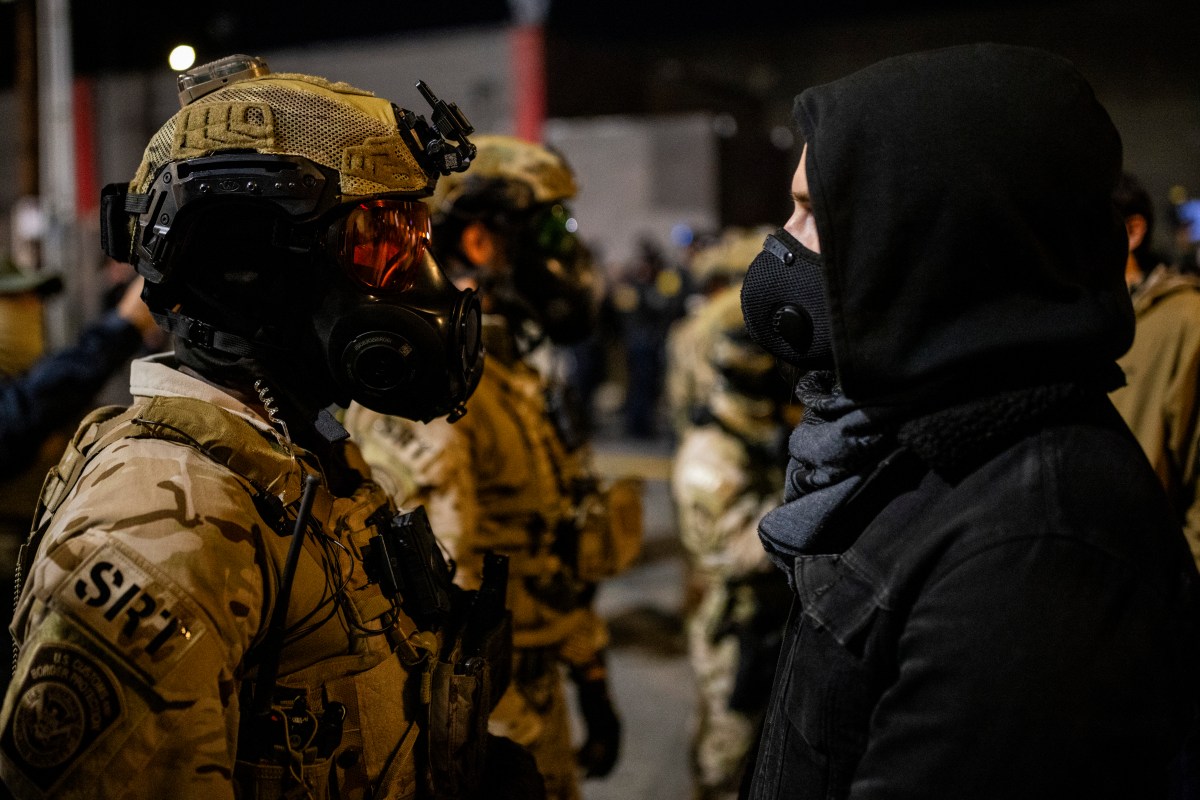
During the first 10 months of Donald Trump’s presidency, the National Guard has been deployed or ordered to five U.S. cities. This started with Los Angeles and Washington, D.C., in June and August, respectively. At the start of October, National Guard troops deployed to three new cities: Memphis, Chicago, and Portland.
The administration frames this as a law enforcement mission—finally getting tough on out-of-control inner city crime that Democratic mayors have failed to address. Locals, however, have generally not appreciated these interventions, finding them pointless at best and harmful at worst. That sentiment has only gotten stronger as viral videos circulate showing troops—from Immigration and Customs Enforcement, Customs and Border Patrol, and other federal agencies—using riot control methods on peaceful protesters or unnecessarily heavy-handed tactics during immigration raids.
The White House is now locked in battles with state courts, governors, and protesters over the issue. What many see as well-intended protests against federal deployments, the White House sees as a sign of coming civil disorder, or “an organized terrorist attack on the federal government and its officers,” according to top administration adviser Stephen Miller. And when federal judges temporarily blocked the deployment of troops in Portland and Chicago, the White House referred to the rulings as an “insurrection.” And rather than accept judicial defeat, Vice President J.D. Vance said on Sunday that Trump was “looking at all of his options.”
You are receiving the free, truncated version of The Morning Dispatch. To read the full newsletter—and unlock all of our stories, podcasts, and community benefits—join The Dispatch as a paying member.
What legal authority does the administration actually have to send troops into cities over local objections? And where is this all heading?
Though news coverage often bundles them all together, the deployment of the Guard revolves around three distinct legal authorities in question: two separate sections of the U.S. Code, often referred to as “12406 authority” and “502 authority,” and the as-yet-uninvoked Insurrection Act of 1807.
In Chicago and Memphis, troops have been deployed under section 502(f) of Title 32 of the U.S. Code, which allows for Guardsmen to be used in “support of operations or missions undertaken by the member’s unit at the request of the President or Secretary of Defense.”
Mark Nevitt, a professor at Emory University’s School of Law and an expert in national security law, told TMD that 502 was “designed in the aftermath of Hurricane Katrina to make it easy for National Guards to respond to national disasters,” not for presidents to send in the Guard over the objection of governors.
This hasn’t been a problem in Memphis, where Tennessee Gov. Bill Lee welcomed the deployment, and the city’s mayor, Paul Young, grudgingly accepted it. But in Illinois, political leaders have taken a different tack. Gov. J.B. Pritzker referred to federal deployment as “Trump’s invasion,” and filed suit in federal court to block it. Chicago Mayor Brandon Johnson has vocally condemned federal operations in the city, barring federal troops from city property in the absence of a warrant.
U.S. District Judge April Perry took that opposition into account when considering a lawsuit filed by the Illinois state government, temporarily blocking the deployment of the Guard and ordering the soldiers returned to state control. However, the Court of Appeals for the 7th Circuit later allowed the Guard to remain under federal command, while maintaining the hold on Guard presence in Chicago. The White House also federalized Texas National Guardsmen, with the enthusiastic approval of Gov. Greg Abbott, to reinforce its presence in the Chicago area. Troops remain in Illinois, although the courts have prevented them from deploying to support federal objectives.
The Trump administration has invoked a different legal justification in Portland: Section 12406 of Title 10 of the U.S. Code. This authorizes a U.S. president to place the Guard under his or her direct command, rather than under state authority, in the event of a “rebellion or danger of a rebellion against the authority of the Government of the United States,” or if “the President is unable with the regular forces to execute the laws” in a given location.
For U.S. District Judge Karin Immergut, it’s doubtful that the federal government will be able to pass that statutory test. “As of September 27, 2025 [the date Trump ordered the Oregon Guard to be federalized], it had been months since there was any sustained level of violent or disruptive protest activity in Portland,” she wrote in her decision granting Oregon officials a temporary restraining order against the Trump administration, halting the deployment. However, two judges for the 9th Circuit Court of Appeals last week appeared to question whether federal judges could weigh in on the appropriateness of a president’s determination, as the administration appeals the case to the higher court. On Wednesday, Immergut extended the temporary restraining order another two weeks, in advance of a non-jury trial set to begin on October 29.
Immergut dismissed arguments from the administration that the threat of protests in other states, or incidents like protesters shining flashlights in the eyes of federal officers, meant that 12406 authority could be invoked, concluding that the “President’s determination was simply untethered to the facts.”
“I think it’s an opinion that reasonable people could disagree about,” Nevitt told TMD, noting that judges who weighed in on decision-making in situations like these risked inserting themselves into the political process.
After the White House attempted to activate and deploy California’s National Guard to Portland, Immergut, a Trump appointee, blocked the administration again, telling lawyers from the Justice Department that the move was in “direct contravention” of her previous order.
But even in the event of a defeat at the Supreme Court, the White House has a third card to play: the Insurrection Act. “I could use it, if I wanted to,” Trump said on Monday. “I’m allowed to use the Insurrection Act.”
The president isn’t wrong. The act, which gives the executive far broader authority to use the military for civil enforcement functions than any other statute, has been invoked 22 times by 10 U.S. presidents. “Whenever the President considers that unlawful obstructions, combinations, or assemblages, or rebellion … make it impracticable to enforce the laws of the United States … he may call into Federal service such of the militia of any State, and use such of the armed forces, as he considers necessary,” Section 252 of the act says.
But the Insurrection Act is usually invoked with the consent of the state governments in question. The last time it was invoked was in 1992, when Los Angeles erupted into riots after the acquittal of four police officers accused of using excessive force in the arrest and beating of Rodney King. At that point, local law enforcement had failed to restore civil order to large swaths of the city, multiple people had been killed, and then-Gov. Pete Wilson requested that President George H.W. Bush invoke the Insurrection Act.
The most famous and controversial invocations came during the civil rights era, when presidents Dwight Eisenhower, John F. Kennedy, and Lyndon B. Johnson called out military forces over the objections of state governors who were either openly defying court rulings or—in the case of Alabama Gov. George Wallace—refusing to protect threatened civil rights marchers.
But each of the three presidents “were very specifically alleging that governors were preventing the exercise of Americans' constitutional rights,” rather than pursuing a general policy objective like the White House currently is doing, Kori Schake, the director of foreign and defense policy studies at the American Enterprise Institute and author of a recent book on U.S. civil-military relations, told TMD.
Trump administration officials claim they want to work with local officials. “Donald Trump wants to come in and help Chicago,” Attorney General Pam Bondi told Fox News host Sean Hannity on Wednesday. “We have Mayor Paul Young working with us, he’s amazing, he’s a Democrat.”
But Bondi also noted that while the administration didn’t believe that it had to use the Insurrection Act in Los Angeles, Washington, or Memphis, the president “absolutely” still has the authority to do so going forward.
Nevitt agreed. “Actually, the threshold for Insurrection Act invocation is a lower threshold, statutorily, than 12406,” he said, and Trump would have broad authority to not only activate federal forces, but use them to actively enforce the laws. The only significant restraints, under current law, are “political,” he argued.
Dispatch Senior Editor Sarah Isgur agreed. “For years, lawyers have been saying this is far too broad,” she told ABC News’ George Stephanopoulos on Sunday. “They warned about it at the beginning of the Biden administration, ‘this is the time to change the Insurrection Act,’ we missed the opportunity then, and here we are.”
Now, with a president who’s eager to use the military for law enforcement, the U.S.’s unique historical relationship to its military might be at risk, Schake told TMD. The armed forces themselves have rarely been deployed in a domestic law enforcement function—and when they have, almost always in close coordination with local governments and the other branches of the federal government, making U.S. citizens less likely to see soldiers as political opponents.
Reversing that trend could make the military itself more politicized. “If the American public starts to think of its military as domestic law enforcement, that’s going to change who chooses to go in the military,” Schake argued. “We’re really lucky that Americans don’t have to be afraid of our military. If they start to get afraid of our military, it really changes the relationship.”
Today’s Must-Read
The Trump administration has seemingly changed tactics but not its strategy or objective in its effort to reform American higher education. Its initial effort to force universities to accede to administration demands has bogged down in extended negotiations and legal obstacles. The newly unveiled “compact for higher education” tries a different angle to avoid those problems, but it is still deeply objectionable. Few universities are likely to voluntarily agree to such a sucker’s deal. In its first months, the administration tried to leverage continued anger over the pro-Palestinian campus protests, along with an aggressive interpretation of civil rights laws, to suspend federal research grants to selected elite universities. The federal dollars could start flowing again, the administration said, only if the universities agreed to an expansive and intrusive set of demands. But the administration did not get the quick deal it presumably expected, and Harvard University took the administration to court. The administration has still extracted substantial financial payouts from universities, but the overall effort has yielded few results. Apparently it is time for Plan B.
Toeing the Company Line
Our Guys
On the Young Republicans.
Faber College on Capitol Hill
Fat, drunk, and stupid is no way to uphold the Constitution, son.
There Are No Silver Bullets for Illiteracy
We know what works. But success stories take time.
Ask a Catholic | Interview: Father Gregory Pine
Jonah defends the Spanish Inquisition.
Vindictive Prosecutions
The Jameses problem.
In Other News
Today in America:
- White House National Economic Council Director Kevin Hassett told Axios that President Donald Trump will announce plans for a “really quite clever and generous”farmer bailout once the federal shutdown ends. (Read more in Monday’s TMD.)
- Treasury Secretary Scott Bessent told reporters that, in response to China’s recent move to implement new export restrictions for rare earth minerals, the administration is planning to “exercise industrial policies” in which the government would take greater control of companies deemed important to national security.
- The Wall Street Journal reported that the White House is preparing to use the Internal Revenue Service to pursue targeted criminal inquiries into left-leaning groups and donors.
- The State Department announced that it has revoked the visas of six U.S. residents over comments they made either mocking or attempting to justify last month’s assassination of right-wing activist Charlie Kirk.
- Democratic Rep. Seth Moulton announced he will challenge 79-year-old Massachusetts Sen. Ed Markey, a fellow Democrat, for his Senate seat in the 2026 midterm election, explicitly noting Markey’s age.
- The National Rifle Association and several other gun groups have filed a lawsuit against the state of California over its new ban on purchasing or transferring “Glock-style” handguns, arguing that the ban violates the Second Amendment.
Around the World:
- The United Nations’ World Meteorological Organization released a report finding that carbon dioxide emissions hit record-breaking levels in 2024, and that the annual rate of CO2 emissions growth has tripled since the 1960s.
- The World Food Program, also a U.N. agency, released a report that found cuts to the agency’s humanitarian assistance programs could bring 13.7 million people—in countries including Afghanistan, Democratic Republic of the Congo, Haiti, Somalia, South Sudan, and Sudan—to “emergency” hunger levels.
- German Defense Minister Boris Pistorius announced that the country plans to spend 10 billion euros ($11.6 billion) for the development and manufacturing of military drones “of all types and altitudes,” in response to Russian aggression.
- Russian President Vladimir Putin hosted Syrian President Ahmed al-Sharaa at the Kremlin to advance Russian-Syrian relations, even as Bashar al-Assad—the former Syrian dictator ousted by al-Sharaa and his allies in December 2024—is reportedly hiding in Russia.
- The Democratic Republic of Congo and its opposing rebel force, M23, agreed to form an international body that will monitor terms for a ceasefire proposal between the two parties, following negotiations held in Qatar’s capital city, Doha.
- Treasury Secretary Bessent said the agency is working to partner with private companies to provide Argentina with an additional $20 billion, on top of the existing $20 billion currency swap.
On the Money:
- Meta announced plans on Wednesday to build a $1.5 billion AI data center in El Paso, Texas, while AI startup CoreWeave also announced a new data center construction project in western Texas.
- The Wall Street Journal reported that at the request of the Justice Department, Meta banned a Facebook group that Attorney General Pam Bondi said “was being used to dox and target ICE agents in Chicago.”
- Google’s AI company, DeepMind, shared that in collaboration with Yale University researchers it created an AI model that developed its own “novel” theory on cancerous behavior in cells, potentially opening the door to new therapies.
- China’s auto industry reported that exports of plug-in hybrid and electric cars have increased 89.4 percent since the beginning of the year, adding up to a total of 1.76 million vehicles.
- The price for silver in U.S. markets increased 6.6 percent on Monday, with spot prices—the real-time, market-based listed price—exceeding $50 for the first time in more than 40 years.
Worth Your Time:
- Friend of TMD Helen Lewis writes about attending Saudi Arabia’s infamous Riyadh Comedy festival (The Atlantic)
- Suha Ma’ayeh, Abeer Ayyoub, and Benoit Faucon report on Hamas’s violent crackdown on rivals in Gaza (Wall Street Journal)
- An obituary for pro-democracy advocate and former Kenyan Prime Minister Raila Odinga, who died on Wednesday at 80 years old. (New York Times)
- A new investigation finds that popular protein powders “carry troubling levels of toxic heavy metals,” including lead. (Consumer Reports)
- Matt Levine breaks down OpenAI’s business plan, 24-hour trading, and insider trading the Nobel Peace prize (Bloomberg)
- The winning entries for 2025 Wildlife Photographer of the Year. (BBC)
Presented Without Comment
Politico: Capitol Police Called To Investigate Swastika in GOP Congressional Office
Also Presented Without Comment
BBC: China Seizes 60,000 Maps Over ‘Mislabelled’ Taiwan
Also Also Presented Without Comment
New York Post: TikTokker Who Went Viral for Bragging About Stealing From Target Arrested Again
Let Us Know
Have any thoughts or questions about today’s newsletter? Drop us a note in the comments or by emailing us at tmd.questions@thedispatch.com. We read every submission, and your message could be featured in tomorrow’s “Behind the Scenes” segment.
Have any thoughts or questions about today’s newsletter? Become a member to unlock commenting privileges and access to a members-only email address. We read every submission, and answer questions in the following edition of TMD.

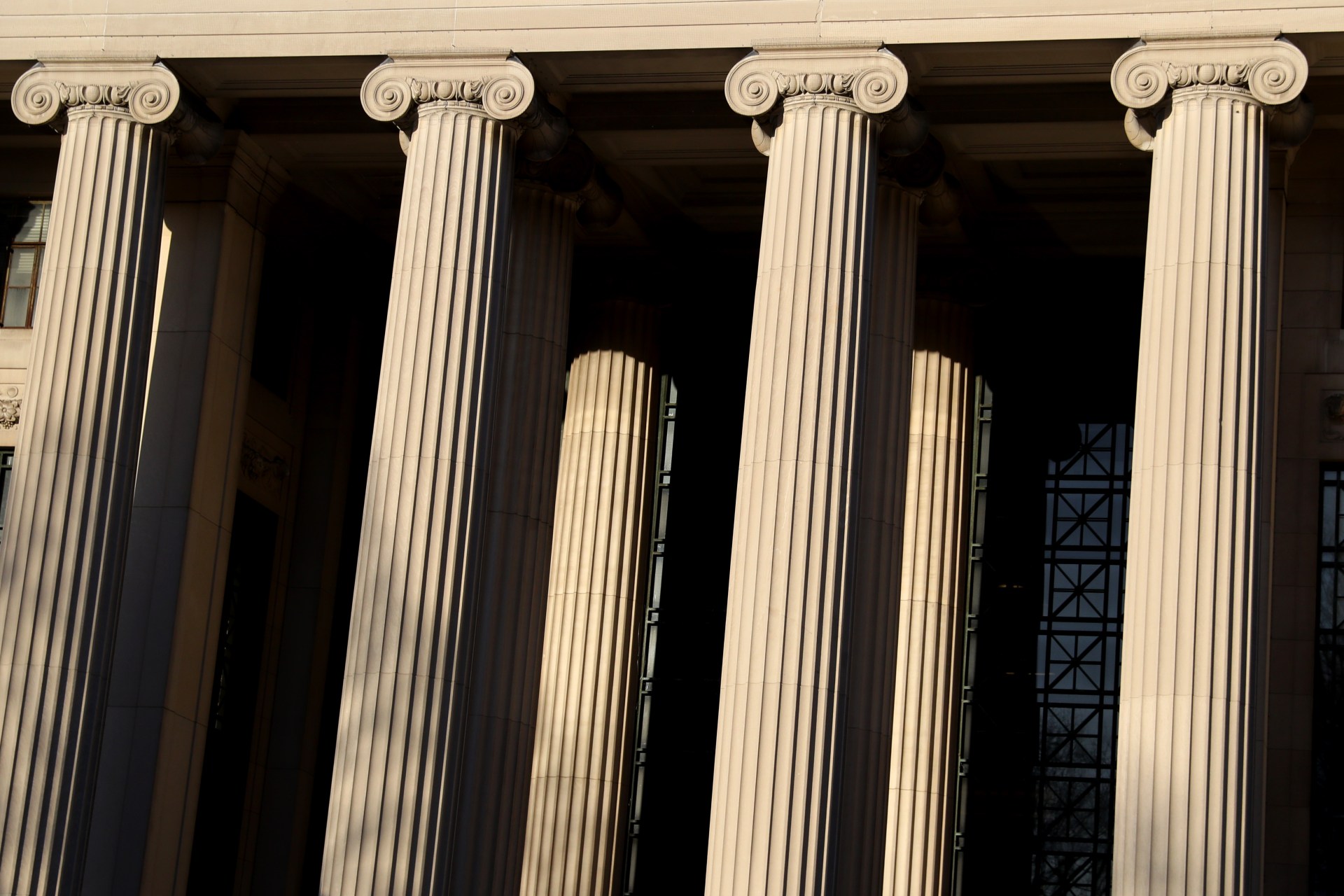



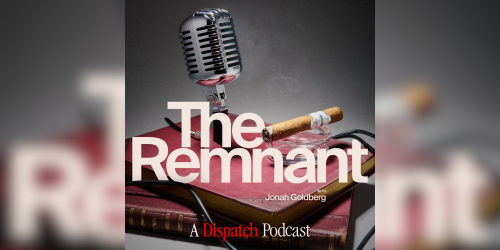






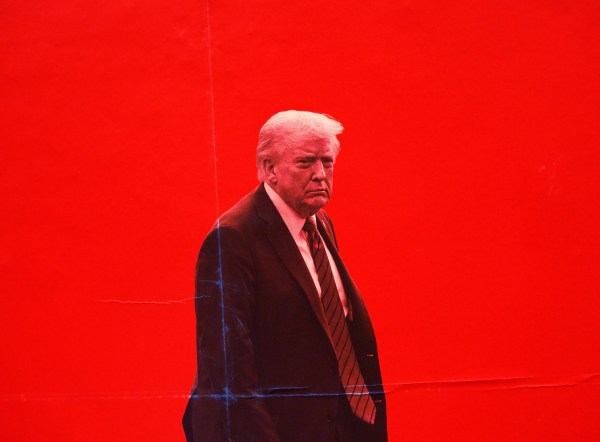
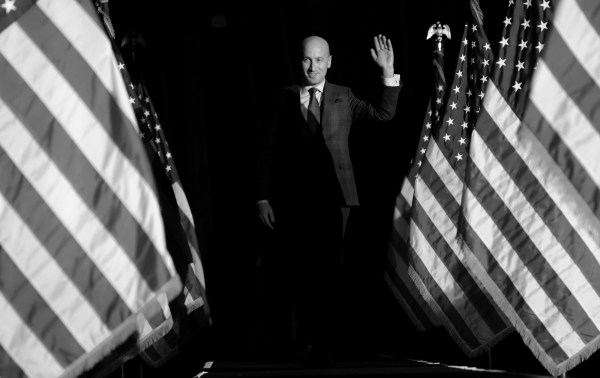
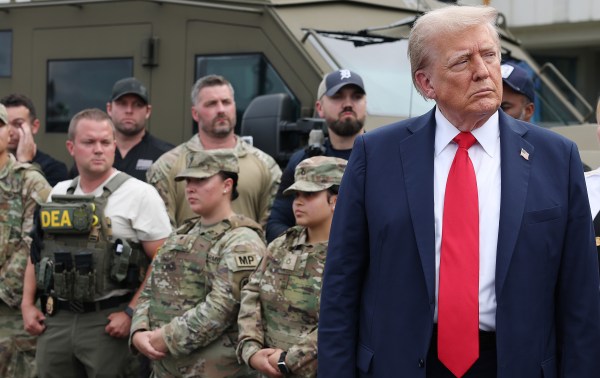
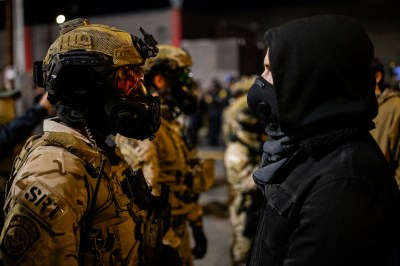
Please note that we at The Dispatch hold ourselves, our work, and our commenters to a higher standard than other places on the internet. We welcome comments that foster genuine debate or discussion—including comments critical of us or our work—but responses that include ad hominem attacks on fellow Dispatch members or are intended to stoke fear and anger may be moderated.
With your membership, you only have the ability to comment on The Morning Dispatch articles. Consider upgrading to join the conversation everywhere.